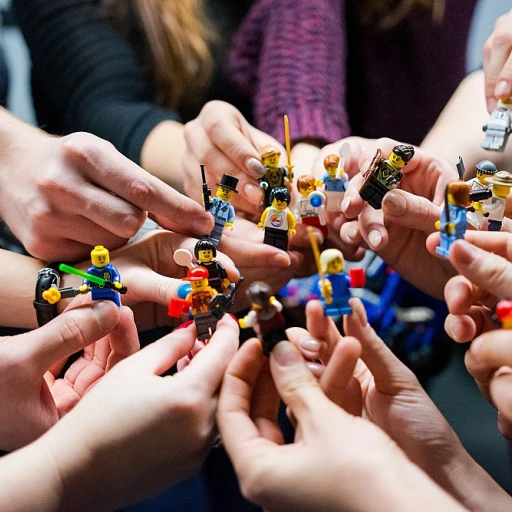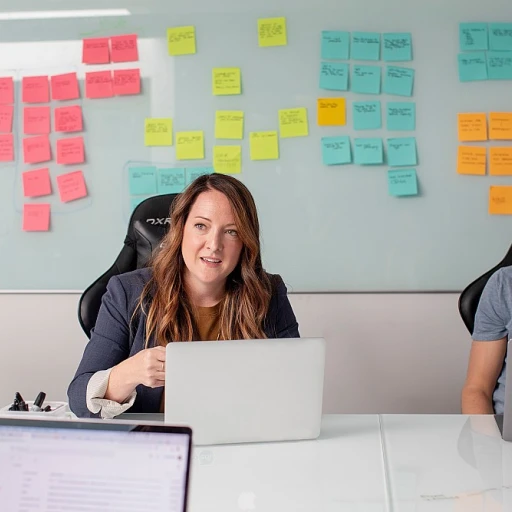
Understanding the value of casual interview questions
Why Casual Interview Questions Matter in Hiring
When it comes to the hiring process, many recruiters focus on technical skills and direct experience. However, casual interview questions can reveal a lot about a candidate’s fit for the company culture and the specific role. These informal questions go beyond the resume, offering a glimpse into how someone thinks, communicates, and adapts to new environments. In today’s competitive job market, understanding a candidate’s soft skills and problem solving abilities is just as important as evaluating their technical expertise.
Casual interview questions help break the ice and set a comfortable tone for the interview. This approach can encourage candidates to open up, giving you a more authentic sense of their personality, work style, and long term career goals. For example, asking about a candidate’s favorite project or how they unwind after a busy day can reveal their values and how they might fit into your team. These questions will also help you gauge their communication skills and ability to handle informal interviews, which are increasingly common in industries like customer service and entry level positions.
- Assessing cultural fit: Informal questions give insight into how candidates align with your company’s values and team dynamics.
- Evaluating soft skills: Questions interview candidates about their approach to challenges or teamwork can highlight problem solving skills and adaptability.
- Reducing interview stress: A casual interview question can make the job interview feel less intimidating, leading to more genuine answers.
It’s important to remember that while informal interview questions are valuable, they should be balanced with more structured questions to maintain professionalism. The timing and context of these questions can make a big difference in how effective they are during interviews. If you want to see how leading companies use creative approaches in their hiring process, check out this example of innovative candidate sourcing strategies in action.
When to use casual questions during the interview process
Finding the Right Moment for Casual Questions
Timing is everything when it comes to using informal interview questions. The right moment can set the tone for the rest of the job interview and help both the interviewer and the candidate feel at ease. Typically, casual questions work best after the initial introductions and before diving into technical or role-specific topics. This approach allows candidates to relax and show their authentic selves, which is valuable for assessing soft skills and cultural fit.
Why Timing Matters in the Hiring Process
Introducing casual questions too early can feel forced, while waiting too long might make the conversation stiff. A good example is starting with a few standard questions about the candidate’s experience and then shifting to a more informal interview style. This transition helps gauge how candidates handle unexpected situations and adapt to the company culture. For entry level roles or customer service positions, informal interviews can reveal problem solving skills and long term potential.
- Use casual interview questions after basic introductions to break the ice.
- Incorporate them before discussing job-specific skills to assess communication and adaptability.
- Reserve some informal questions for the end to leave a positive impression and encourage open discussion about career goals or team dynamics.
Aligning Informal Questions with Company Culture
Every company has its own approach to interviews. Some organizations value a relaxed atmosphere, while others prefer a more structured process. Informal questions will help you understand if a candidate’s personality and work style align with your team. For more insights on modern approaches to candidate sourcing, you can explore direct sourcing strategies that emphasize cultural fit and candidate experience.
Ultimately, the timing and context of informal interview questions can influence the quality of answers and the overall success of the hiring process. By being intentional about when and how you use these questions, you create a more engaging and informative interview for both sides.
Examples of effective casual interview questions to ask candidates
Casual Questions That Reveal More Than a Resume
In informal interviews, the right questions can help you see beyond a candidate’s technical skills and understand their fit for your team and company culture. These questions are not just about breaking the ice—they are strategic tools to evaluate soft skills, problem solving, and long term potential. Here are some good examples of casual interview questions that can make your job interview process more insightful:
- "What do you enjoy doing outside of work?"
This question gives you a sense of the candidate’s personality, interests, and how they might relate to your team. It can also reveal work-life balance priorities and help you assess cultural fit. - "Can you tell me about a time you solved a problem in an unexpected way?"
This is a great way to evaluate problem solving skills and creativity. It encourages candidates to share specific examples from their experience, showing how they approach challenges in real situations. - "What type of work environment helps you do your best work?"
This question will help you understand if the candidate will thrive in your company’s setting. It’s especially useful for roles where team dynamics or customer service are important. - "If you could learn any new skill for this job, what would it be and why?"
This question highlights a candidate’s self-awareness and willingness to grow. It can also indicate how they see their career goals aligning with the role. - "How do you like to receive feedback?"
This is a good way to explore communication preferences and adaptability, which are key soft skills in most jobs. - "What’s something you’re proud of that’s not on your resume?"
This opens the door for candidates to share unique experiences or skills that might not fit into a traditional job application, giving you a fuller picture of their potential.
For entry level roles, you might tailor these questions to focus more on learning attitude and teamwork. For more technical or senior positions, you can dig deeper into leadership style or long term vision.
Remember, the goal of these informal interview questions is to create a comfortable space where candidates can show their authentic selves. This approach can lead to more honest answers and help you make better hiring decisions. If you’re looking for more ways to tailor your interviews for specific roles, check out this guide on how to effectively hire Next.js developers for your team.
How to interpret responses to casual questions
Reading Between the Lines: What Candidate Responses Reveal
When you ask casual interview questions, the answers can reveal much more than just surface-level information. The way a candidate responds gives you insight into their soft skills, problem solving abilities, and how they might fit into your team or company culture. Here’s what to look for during informal interviews:- Communication style: Does the candidate answer interview questions clearly and thoughtfully? Are they able to explain their experience or skills in a way that makes sense for the job and your company?
- Adaptability: Informal interview questions often catch candidates off guard. Pay attention to how they handle unexpected or open-ended questions. This can be a good indicator of how they’ll manage change or ambiguity in the role.
- Self-awareness: A strong answer to a casual interview question often includes honest reflection. Candidates who can discuss their strengths, weaknesses, or career goals with authenticity may be more likely to grow with your company long term.
- Team fit: Listen for clues about how the candidate works with others. For example, if you ask about a time they solved a problem at work, do they mention collaboration or customer service? Their response can help you gauge how they’ll interact with your existing team.
- Motivation and values: Informal questions about what excites a candidate or why they chose your company can reveal if their values align with your company culture and mission.
Red Flags and Positive Signals
Not every answer will be perfect, but certain patterns can help you make better hiring decisions:- Positive signals: Candidates who share specific examples, show enthusiasm for the role, and demonstrate curiosity about your company are often a good fit for both entry level and experienced positions.
- Red flags: Watch for vague answers, negativity about previous jobs, or a lack of interest in the team or company. These can signal potential issues with long term engagement or adaptability.
Balancing professionalism with informality
Finding the Right Tone in Informal Interviews
Striking a balance between professionalism and informality during a job interview is a subtle skill. While casual interview questions can reveal a candidate’s soft skills, problem solving abilities, and fit with your company culture, it’s important to maintain the standards expected in a hiring process. Too much informality can undermine the seriousness of the role or make candidates uncomfortable, while being overly formal may prevent candidates from showing their true selves.
Tips for Maintaining Professionalism
- Set clear expectations: Let candidates know that some questions will be more informal, but still relevant to the job and company. This helps them relax without losing sight of the interview’s purpose.
- Stay relevant: Even casual questions should relate to the candidate’s experience, skills, or long term career goals. For example, asking about a favorite project can open up a conversation about teamwork or customer service skills.
- Be mindful of boundaries: Avoid questions that are too personal or unrelated to the job. Good informal interview questions focus on work style, problem solving, and how the candidate will fit with the team.
- Listen actively: Show respect for the candidate’s answer, whether it’s about their approach to entry level tasks or how they handle time management. This builds trust and encourages honest responses.
Examples of Balanced Questions
Here are some examples of interview questions that keep things light but professional:
- "Can you share a time when you had to learn something new quickly at work? How did you approach it?"
- "What’s your favorite way to unwind after a busy week?" (This can reveal work-life balance priorities without being intrusive.)
- "Describe a situation where you had to solve a problem with limited resources."
- "How do you like to receive feedback from your team or manager?"
Why Balance Matters
Maintaining this balance will help you get authentic answers while ensuring the candidate feels respected and valued. Informal interviews can be a great way to assess fit, but only when handled thoughtfully. Remember, the goal is to make the candidate comfortable enough to show their true skills and personality, while keeping the process fair and aligned with your company’s values.
Common pitfalls to avoid with casual interview questions
Risks of Overusing Informal Interview Questions
While casual interview questions can reveal a candidate’s soft skills and cultural fit, relying too much on informal interviews can backfire. Here are some common pitfalls to watch out for during the hiring process:
- Losing Focus on Job Requirements: If the interview drifts too far from the job, you might miss assessing essential skills or experience. Remember, the goal is to evaluate how well the candidate can perform in the role and contribute to the team.
- Unintentional Bias: Informal questions can sometimes favor candidates who share similar backgrounds or interests with the interviewer. This can affect diversity and fairness in your company’s hiring process.
- Making Candidates Uncomfortable: Not everyone is comfortable with informal interviews. Some candidates, especially those at entry level or from different cultures, may struggle to answer interview questions that feel too personal or off-topic. This can impact their ability to show their true problem solving skills or customer service mindset.
- Missing Red Flags: Focusing only on casual interview questions may cause you to overlook gaps in work history, technical skills, or long term career goals that are critical for the job.
- Inconsistent Experience: If some candidates get more informal questions than others, it can lead to an uneven assessment. Make sure your interviews are structured enough to compare answers fairly.
Tips to Avoid These Pitfalls
- Balance informal and structured interview questions to get a complete view of each candidate’s fit for the company and the role.
- Prepare a list of good example questions ahead of time, and use them consistently across interviews.
- Be mindful of time. Don’t let informal questions take over the entire job interview.
- Always bring the conversation back to the candidate’s skills, experience, and how they will help the team succeed.
By being aware of these risks, you can use informal interview questions effectively, without losing sight of what matters most for your company and the candidate’s future success.













